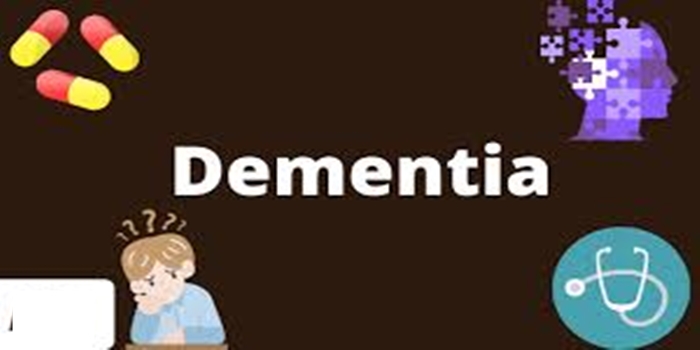In this article, we discussed the meaning of dementia, the symptoms, the causes, the types, we also talked about the treatment
Definition
Dementia is a general term for loss of memory, language, problem-solving and other thinking abilities that are severe enough to interfere with daily life.
Dementia is a general term that represents a group of diseases and illnesses that affect your thinking, memory, reasoning, personality, mood and behavior. The decline in mental function interferes with your daily life and activities. It’s estimated that about 50% of people age 85 and older have it. Current medications may help slow the mental decline.
The Symptoms of Dementia
The symptoms include:
Mood changes,
Behavioral change
problems with planning and organizing.
Early symptoms
Forgetting recent events
Difficulty concentrating
Confusion about time or place
Difficulty finding words
Difficulty understanding what is being seen
Personality or behavior changes
Apathy, withdrawal, or depression
Progressive symptoms
Aggressive behavior, Wandering, Sleep problems, Delusions, Hallucinations, Misperceptions and misidentifications, and Time-shifting.
Other symptoms Trouble handling money, Repeating questions, Poor judgment, Poor spatial skills, and Loss of initiative.
The symptoms can be subtle and may not be immediately obvious. They may get worse gradually, or they may remain the same.
The Causes of Dementia
This is caused by brain damage or loss of nerve cells, which can be due to many diseases, injuries, or medications.
Diseases
Alzheimer’s disease: The most common cause of dementia, caused by abnormal protein buildups in the brain
Vascular: Caused by conditions that damage blood vessels in the brain, such as high blood pressure, high cholesterol, or diabetes
with Lewy bodies: Caused by abnormal protein deposits in nerve cells
Frontotemporal : A group of diseases that cause degeneration of the frontal lobe of the brain
Parkinson’s disease: A condition that commonly leads to dementia
Injuries
Strokes: The second most common cause of it.
Brain tumors: Can cause it
Head injuries: Severe head injuries or repetitive brain injuries can cause it
Medications
Anticholinergics
Antidepressants, antipsychotics, and some bladder control medications can increase the risk of dementia
Benzodiazepines, antihistamines, and sleep medications
Long-term use of these medications in high doses can increase the risk of dementia
Other causes
Nutritional deficiencies, such as low vitamin B12 or vitamin D
Chronic alcohol abuse
Metabolic changes, such as changes in blood sugar, sodium, and calcium levels
Types of Dementia
Alzheimer’s disease
The most common type of dementia, affecting memory, thinking, and behavior.
Vascular
The second most common type of dementia, caused by reduced blood flow to the brain.
Lewy body
An umbrella term for conditions that include Parkinson’s disease dementia and dementia with Lewy bodies. Symptoms include difficulty focusing, delusions, and movement and sleep problems.
Frontotemporal dementia
A less common type of dementia that affects the frontal and temporal lobes of the brain.
Other types include:
Alcohol-related dementia: Caused by regularly drinking alcohol at risky levels
Creutzfeldt-Jakob disease: A rare brain disease caused by an abnormal protein called prions
Wernicke-Korsakoff syndrome: A brain disorder caused by a severe deficiency of vitamin B1
HIV-associated dementia: A brain condition linked to the Human Immunodeficiency Virus
Dementia can also be caused by traumatic brain injury, such as repeated blows to the head.
There is no cure for dementia, but research is ongoing to find cures for the diseases that cause it.
Treatment of Dementia
Dementia is treated with a combination of therapies and medications to help with symptoms. There is no cure for it..
Medications
- Acetylcholinesterase inhibitors
These drugs increase acetylcholine levels in the brain, which can help with memory, thinking, and language. Examples include donepezil (Aricept), rivastigmine (Exelon), and galantamine (Reminyl).
- Memantine
This drug blocks the effects of glutamate, a chemical that can damage nerve cells in Alzheimer’s disease.
Therapies
- Occupational therapy: Helps people with it to identify and solve problems with everyday tasks, such as getting dressed.
- Speech and language therapy: Helps people with dementia improve communication.
- Cognitive stimulation: Activities and exercises to help with memory, problem-solving, and language.
- Relaxation techniques: Massage, music, or dance therapy can help with relaxation.
- Talking therapies: Support people with to talk about their feelings.
Environmental changes
- Remove clutter and noise.
- Hide objects that could be dangerous, like knives and car keys.
- Install monitoring systems to alert you if the person wanders.
- Break tasks into smaller steps and focus on success.
- Keep a calendar and other reminders around the home.
Support
- Seek emotional support from family, friends, or a counsellor.
- Be patient and speak calmly.
- Listen to the person’s concerns and reassure them.
Conclusion
Learning early that you have a analysis, it allows you and your family to plan for a meaningful quality of life together and enables you to get your legal, financial and healthcare plans and desires in order. Your healthcare team, including clinicians, social workers, hospice and pastoral care members, is ready to provide education, support and care for you or your loved one.

